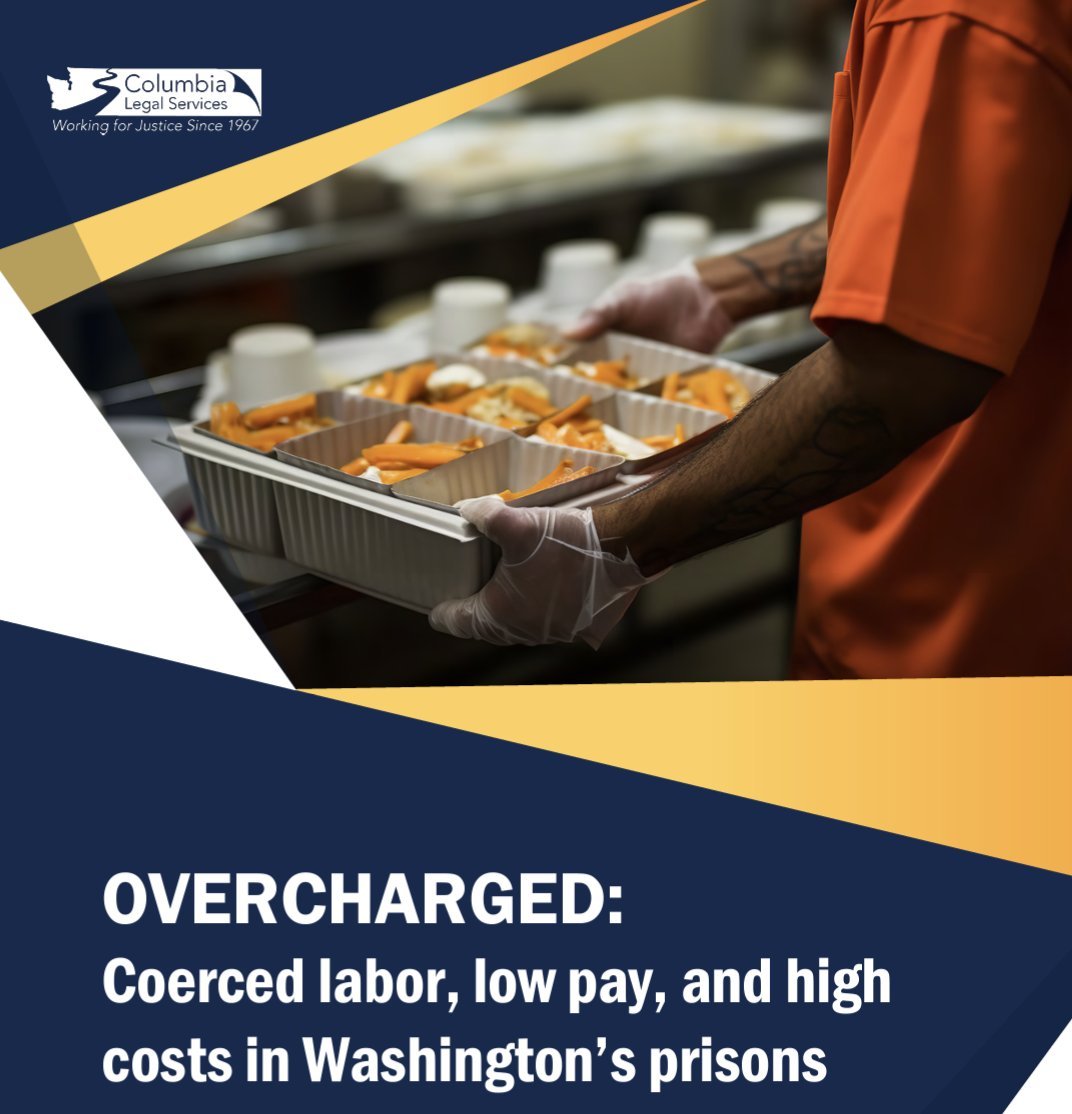By Columbia Legal Services
Washington’s prisons are public institutions run by the state Department of Corrections (DOC). The purpose of state correctional institutions is ostensibly to rehabilitate individuals, and to do so without a profit motive or by facilitating profit-seeking behavior. However, the state realizes enormous cost-savings from underpaying its captive labor force as little as $1.00 per hour. People incarcerated perform essential operations jobs like cleaning units and bathrooms or working in food service, all for meager pay far below Washington’s statewide minimum wage. People in prison also often perform unpaid labor as DOC fails to approve all jobs as paid positions. Washington State has recognized in other settings that underpaying detained workers is wrong. In 2017, Washington State sued the GEO Group—a for-profit corporation running the private immigration detention center in Tacoma—for failure to pay its workers (people in custody in the detention center) in accordance with Washington’s minimum wage law. At the time, the GEO Group was paying workers in custody $1.00 per day. The State brought this lawsuit – and has so far prevailed – on the basis that private prisons must comply with Washington State wage laws. And yet, the State has not taken similar steps to protect people in state, local, or municipal prisons and jails. Instead, state law currently exempts people housed in public carceral facilities from the definition of “employees” for the purposes of Washington’s minimum wage and labor standards laws. Further, people in Washington state prisons face severe consequences if they refuse to work, including lengthier prison sentences. This system of coerced and underpaid labor within DOC is nothing short of modern-day slavery. And, in keeping with this sordid legacy, people in prison face ongoing discrimination on the basis of race, ethnicity, gender, sexual orientation, ability, and immigration status—all of which are barriers to gaining and maintaining the employment people need to avoid punishment and to earn enough to pay for basic necessities. Correctional Industries (CI) is the division within DOC that operates businesses and employs people in custody in Washington prisons. CI reported over $133 million in revenue and over $38 million in assets in fiscal year 2023. The majority of CI workers fall into one of two classes of employment: Class II and Class III. Class II jobs are generally referred to as “CI jobs,” and entail working outside the prison unit, either in an operations role (e.g., food production, laundry, etc.), or producing other goods and services (e.g., furniture manufacturing) that CI then sells to various government agencies and nonprofit organizations. Class II workers usually earn between $0.80 and $2.85 per hour and are eligible for overtime pay.6 Class III jobs are generally considered “unit jobs,” and include porters, facility maintenance, and other essential tasks around the prison units. Despite the wide range of prison jobs, DOC fails to provide people in prison with sufficient opportunities for real-world job training or skill acquisition, leaving people in custody unprepared to gain employment after release. In response to growing awareness and concern over labor exploitation in prisons, in 2023, the state legislature allocated funds to increase the wage floor for Class III jobs from $0.42 to $1.00 per hour. However, DOC then capped worker earnings at $40 per week.7 Even with this raise, people in DOC custody are paid far below the 2024 state mandated minimum wage of $16.28 per hour, and meanwhile the cost of living in prison is rising.
Seattle: Columbia Legal Services. 2024, 62pg




